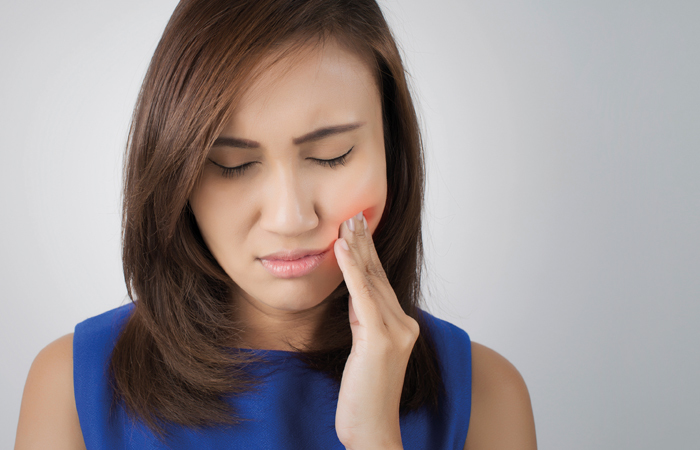A golden opportunity
In OTC
Follow this topic
Bookmark
Record learning outcomes
Public awareness of the important role that pharmacy teams can play in providing oral care is low. But there’s plenty that can be done to change this
Hardly a year goes by without a new initiative being launched to improve the interactions between pharmacy staff and local GPs, but very little work has been done to improve the working relationship between pharmacy staff and dentists.

According to NHS England, dental pain is the second most common cause of calls to NHS 111, particularly at weekends. Pharmacy could help to change this, but is currently an under-used resource. This is a shame, and a missed opportunity to improve oral health for patients. The good news is though, that this can change by staff making the pharmacy’s role in oral care clear to everyone who comes through the door.
Costly mistakes
The total cost of poor dental health is high, with research suggesting that it can lead to other health problems, such as heart disease, and a significant amount of time lost every year to oral health-related illness.
The British Dental Health Foundation says that more than two million people have taken time off work in the past five years because of poor oral health. This may have something to do with the fact that a quarter of all adults have not visited a dentist in the past two years. One in three adults suffer regular dental pain as a result of this poor oral health, with the total cost to the economy estimated at £36 million a year.
Despite this, one in six people consult their pharmacy first when they have an oral health problem, putting pharmacy teams in a unique position to improve the situation. Pharmacy teams can aim not only to treat people with minor oral health complaints, but also to play a role in improving education about oral health, in a bid to improve it.
Common problems
Pharmacy teams will be used to helping patients who come to the pharmacy looking for advice on bleeding gums or mouth ulcers, but there are a wide variety of other problems they could present with that teams need to be aware of. These include:
- Dental pain
- Tooth decay
- Loose/broken filings
- Orthodontic pain
- Gum disease
- Mouth ulcers
- Mouth cancer
- Periodontal disease
- Problems caused by dentures
- Dry mouth (caused by some medications)
- Pregnancy-related dental complications
- Eating disorder-related dental problems.
Careway pharmacist Shaheen Bhatia of P&S Chemist in London says that patients often come into the pharmacy asking for help with problems related to gum disease, mouth ulcers, and tooth loss. “There are many over-the-counter products that pharmacists can offer to provide temporary relief, and to help combat plaque build-up and bacteria, which could be the cause of gum disease,” she says.
“For gum disease, we would recommend a chlorhexidine mouthwash or gel and if they are smokers, we would use the opportunity to get them on a stop smoking programme. Now that we are a healthy living pharmacy, we would always discuss eating well and maintaining a healthy lifestyle too,” Shaheen explains.
Could it be cancer?
While pharmacy teams may be well aware of minor oral health problems already, it is important that everyone is also aware of more serious problems, such as mouth cancer.
As mouth cancer often presents as a mouth ulcer that won’t go away, it is essential that awareness of the signs of cancer is improved in the pharmacy, says David Arnold, director of communication at the Oral Health Foundation. “We know from our own research that one in six people are likely to visit their pharmacist first to seek help about oral health issues, most notably mouth cancer,” he says. “This means it is really important that everyone within the pharmacy knows the warning signs for mouth cancer. There have been cases where customers have sought gels and creams for long-lasting mouth ulcers that are potentially far more serious.”
David explains that it is important to ask customers how long they have had their mouth ulcers before selling any creams or gels to treat it. “If their answer is three weeks or longer,” he says, “you need to refer them urgently to a dentist or medic because it could be one of the early signs of mouth cancer.”
Other signs to be aware of include red and white patches or unusual lumps or swellings in the mouth. Smoking, alcohol abuse, poor diet, smokeless tobacco and the human papillomavirus (HPV) are all risk factors that can contribute to mouth cancer.
David adds: “Our message – one that can be relayed to concerned members of the public – is: ‘If in doubt, get checked out,’ and encourage them to visit their dentist.”
Healthy lifestyles for oral health
Of course, customers don’t just come to the pharmacy when they have dental problems. They will also pop in to buy basic dental care products for everyday use – and this provides the perfect opportunity for pharmacy staff to intervene early and offer education that could prevent dental problems occurring at a later date.
NICE guidelines produced at the end of last year made it clear that oral care needs to be part of the overall care plans for people at risk of poor oral health. The guidelines state that this is most likely to include people with mental health issues, vulnerable adults, drug users and some ethnic groups.
One of the reasons behind this updated guidance is an increasing understanding of the link between oral health and overall health, although causation is difficult to determine, says a spokesperson from the British Dental Association.
“The thinking is that everyone has bacteria in their mouth,” she says. “But if you don’t have a good oral hygiene routine, it can trigger gum disease, and the high bacterial overload may circulate to other parts of the body. On the other hand, it’s possible that the causal factors such as smoking, heavy alcohol intake and poor diet are shared.”
There are specific concerns surrounding the correlation between oral health and heart disease, particularly in people with diabetes, but whether or not this is due to overall poor health is not yet understood.
Many of the people who are most at risk of dental health issues are those in low socioeconomic groups, warns Heidi Wright, practice and policy lead for England at the Royal Pharmaceutical Society. “This may be because they are more likely to smoke or have a diet that’s high in sugar, but it is also the case that they may buy cheaper products, such as toothpaste with less fluoride in it, which can have an impact on overall oral health,” she says.
Jane Devenish, NHS standards and services pharmacist at Well believes that community pharmacy is ideally placed to assist these patients: “As well as the general public, we also see many key groups who need to pay particular attention to oral health such as those taking medication for substance misuse; children; those with diabetes; or patients taking medication that can dry the mouth. We encourage pharmacy teams to embed these messages into their everyday interactions with customers, such as reminding patients with sugary liquid medication to rinse their mouth or brush their teeth after use, with the exception of nystatin which should be sugar-free if possible.”
Pharmacy teams can also advise patients on how to maintain a good oral health regimen using the tooth brushing information box, left, and helping them to select toothbrushes and toothpastes that produce the best results.
“The pharmacy should stock toothpastes containing the right amount of fluoride,” says David. “All children up to three years old should use a toothpaste with a fluoride level of at least 1000ppm (parts per million). After three years of age, everyone should use a toothpaste that has 1350ppm to 1500ppm of fluoride.”
You can help customers who are buying toothbrushes by making it clear they need to be changed regularly. For a toothbrush to be effective, it needs to be small enough to reach the back of the mouth, and the bristles must be unfrayed.
The Oral Health Foundation also recommends the use of dental floss, saying that brushing only cleans two-thirds of the surface of the teeth. However, it can be tricky to use and customers may need to be taught to floss by their dentist or hygienist.

Lifelong improvements
Making sure that children have access to appropriate dental care is particularly important. “Children should have a dental check by the time they are one year old and it is important for pharmacy staff to ensure people know that dental checks are free for under 18-year-olds,” says Heidi. “You should be promoting sugar-free medicines and using a syringe when administering medicines to children, which is not only more accurate, but also helps their teeth.”
It is also important to make sure that children are supervised when brushing their teeth, she adds. And even before birth, pregnant women should be made aware of the importance of ensuring sufficient calcium in their diet for strong teeth.
The right way to brush
The Oral Health Foundation provides guidance on tooth brushing that you can pass on to customers:
- Place the head of the toothbrush against the teeth, then tilt the bristle tips to a 45-degree angle against the gumline. Move the brush in small, circular movements, several times, on all surfaces of every tooth
- Brush the outer surfaces of each tooth, upper and lower, keeping the bristles angled against the gumline
- Use the same method on the inside surfaces of the teeth
- Brush the biting surfaces of the teeth
- To clean the inside surfaces of the front teeth, tilt the brush vertically and make several small, circular strokes with the front part of the brush
- Brushing the tongue will help freshen breath and will clean the mouth by removing bacteria
- Clean in between the teeth with interdental brushes or floss
- Use a mouthwash
- Chew sugar-free gum containing xylitol for 10 minutes after eating.
Doing things better
Pharmacy teams need to make sure that customers and patients know they can get hold of high quality advice and signposting to other dental services when appropriate. And improving working relationships between dentists and pharmacies can help to ensure patients are able to consult the most appropriate professionals when they need help.
A study carried out in 2015 – Is there a role for community pharmacists in promoting oral health? – showed that more than two-thirds of pharmacies would be interested in including the promotion of oral health in the pharmacy contract, demonstrating that the sector is willing to do more.
There are few well-publicised examples of pharmacies working with dentists to improve the oral health of the local population, and many informal arrangements do exist. For instance, the minor ailments service has been used by dentists in Sutton and Wandsworth, meaning that dentists in those areas can refer people with minor problems to their local pharmacy. Developing these schemes will mean that patients will be able to access appropriate care and advice when they need it most.
It's time to smile
National Smile month takes place from 15 May to 15 June this year, and is the perfect opportunity for pharmacy teams to let their patients know that they are able to help them with their oral health.
You can get involved by developing an educational display in your pharmacy with information on improving oral health, or on a bigger level by holding an event. How about running a ‘two-minute challenge’, where you time how long people brush for, without the aid of a clock or timer, to remind them that the recommended time for brushing is two minutes.
Dental pain is the second most common cause of calls to NHS 111, particularly at weekends
